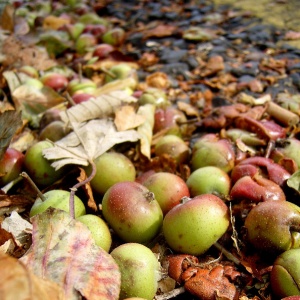
This editorial article focuses on an aspect of agricultural food loss and waste, not often considered: the effects that a reduction in food loss and waste at the production stage, might have on the species that have become reliant on food waste.
On the one hand, the article notes that a significant reduction in food waste across the supply chain would increase the effective productivity per unit area of land, potentially reducing pressure to expand agriculture’s land footprint and thereby avoiding habitat destruction as a result of land use change or agricultural intensification. On the other, food waste does represent a significant part of the foodweb in agricultural landscapes and so a reduction in it may have cascading consequences for biodiversity, especially for species whose ecology, evolution and life histories are shaped by feeding on food sources made available through human activity.
By way of example, bird species are used to illustrate different potential interactions, including grain-eating bird species of agricultural pest, which consume harvestable products; species that rely on discarded food, such as fish bycatch or crop residues; scavenger species reliant on dead animals such as vultures, or landfills such as gulls; and insectivorous species indirectly affected via measures to control insect pests.
Despite these cases, the authors judge that the likelihood is, that the waste reduction approach to food security will benefit many more species than it harms. This is based principally on the potential for land-sparing, combined with possible reductions in negative trophic interactions (such as toxins and disease linked to waste consumption), as well as reduced direct impacts from harvesting activities on scavengers, and indirect impacts relating to changes in predation of species.
In light of the many connections of species to human food waste, but the lack of a systems level understanding of the relationship between agricultural food waste and biodiversity, the editorial calls for a research agenda to address the following question: will a reduction in food waste to meet the increasing demands for food, have a positive or negative impact on biodiversity and ecosystem services, and which species will be winners and losers?
Citation
Gordon, I.J., Altwegg, R., Evans, D.M., Ewen, J.G., Johnson, J.A., Pettorelli, N. and Young, J.K., 2016. Reducing agricultural loss and food waste: how will nature fare?. Animal Conservation, 19(4), pp.305-308. Doi: 10.1111/acv.12290
Read the full article here (open access)
You can read related research by browsing the following categories of our research library: Primary production: Agriculture; Primary production: Aquaculture and fisheries; Consumer stage; Waste and resource use; Biodiversity and ecosystems;
And through the keyword categories: Agricultural biodiversity; Agricultural losses; Food waste; Land use & land use change; Land-sparing vs. land-sharing; Landscape biodiversity; Marine & aquatic ecosystems; Ecosystems & ecosystem services; Waste.







Post a new comment »